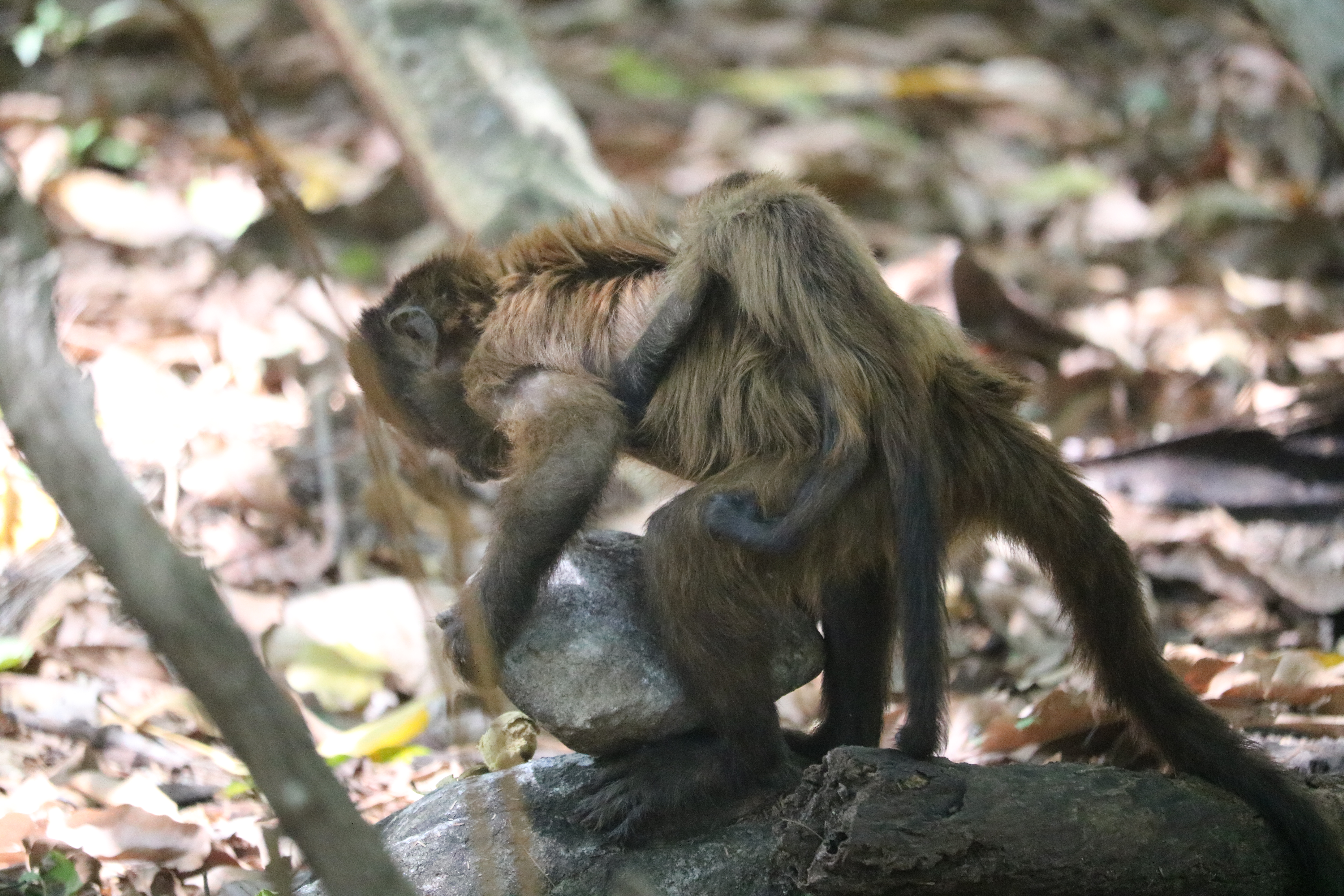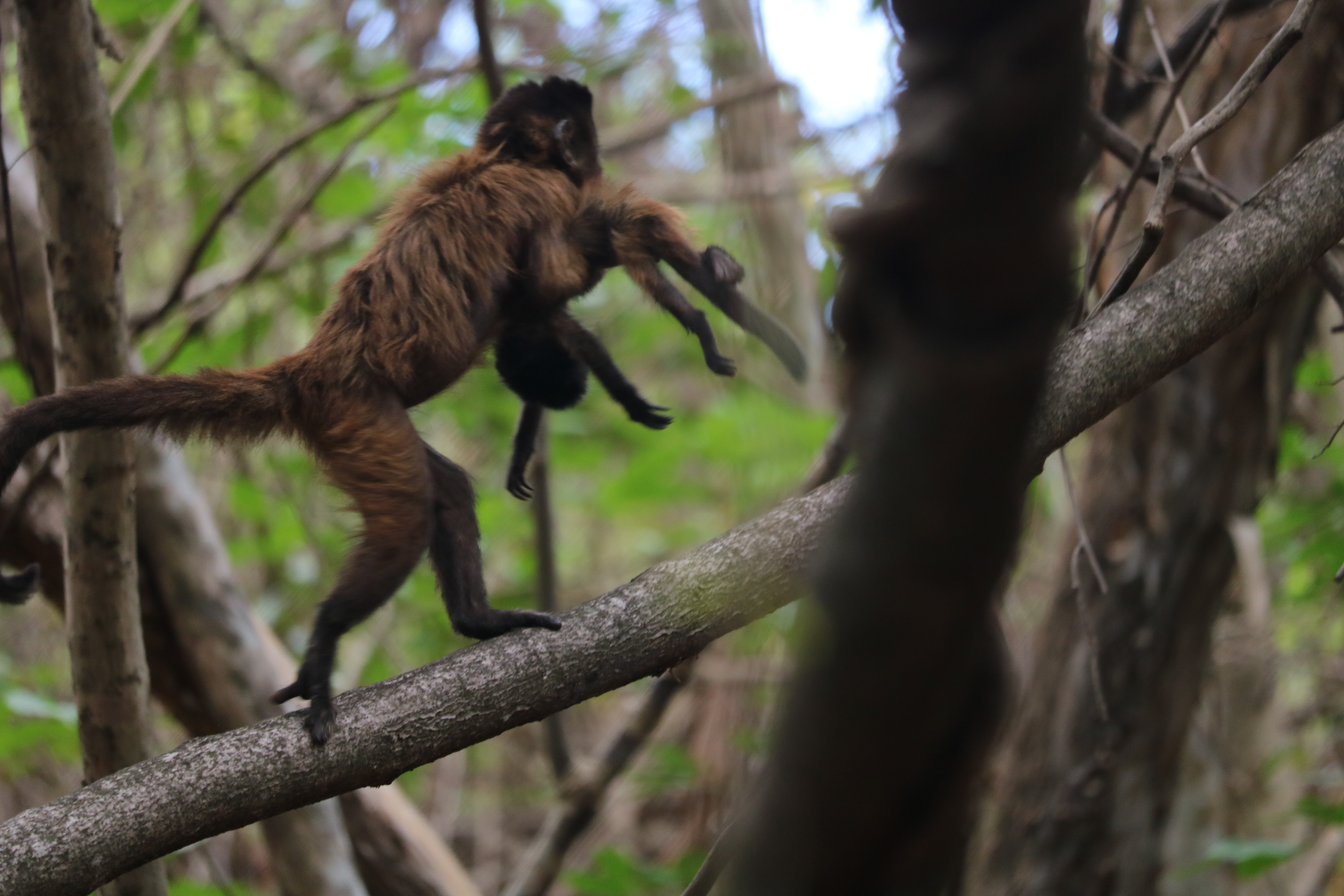In an ultimately heartbreaking example of maternal monkey affection, one study has detailed the care a capuchin mother gave to her disabled baby, both before and after its eventual death. As well as allowing a glimpse into what caregiving looks like in the animal kingdom, the study provides some clues as to how such behaviors may have evolved in nonhuman primates.
The infant wild bearded capuchin (Sapajus libidinosus), believed to have been around eight weeks old at the time of his death, had a non-functioning left leg. While there was no external damage, it is thought that he had a dislocated knee, which would have made gripping difficult. Both the infant and his mother, alongside other group members, were observed in the wild in Ubajara National Park, Brazil, over several weeks in 2021.
The researchers noticed that the infant’s disability made carrying more of a challenge, with the mother – and on several occasions, an adult male – making allowances for this. They “stopped walking when the infant was in an unstable position and adjusted the infant on their back at a frequency that appeared higher than usual,” the authors write.
As well as an increased instability while carrying the infant, the mother appeared to run into difficulties when cracking open encased fruits with a stone. When doing so, she sometimes raised her tail, “an unusual behavior that may be done to prevent the disabled infant from falling during high-speed and amplitude movements by the mother,” the authors add.

Carrying an injured baby made it more difficult for the mother to use stone tools. Image courtesy of Tatiane Valença
Despite the additional challenges, the mother’s care for her baby was much the same as for any other, non-disabled infant, co-author Tatiane Valença, from the University of São Paulo (USP) and Neotropical Primates Research Group (Neoprego), told Newsweek:
“The mother (Baleia) carried the infant (Balaio) in a very similar way as the other infants, [just] with some adjustments.”
However, even with these adjustments, the young monkey didn’t survive past eight weeks. Although the researchers aren’t sure exactly how he died, they suggest it could have been a fall caused by his disability.
“We are not sure what caused the death, but it was probably caused by a fall,” Valença told Newsweek. “After the death, we examined the body. The skin around the left eye was discolored and swollen, favoring the hypothesis that the death was due to a trauma. Then, his disability may have contributed to his death.”
Following the infant’s death, his mother continued to carry him around for almost four hours over more than 1 kilometer (0.6 miles). She eventually dropped his body, which weighed almost 16 percent of the average body weight of an adult female, while leaping from a tree. She was also seen grooming and licking the body, and eating flies that had gathered around it.

The mother carried the body of the dead infant in her hands for several hours. Image courtesy of Tatiane Valença
The difficulty of carrying disabled or dead individuals while traversing the treetops may explain why there are so few examples of tree-dwelling primates exhibiting similar behavior, the authors suggest.
Reports of care for injured, ill, disabled, or dead group members by New World monkeys are rare, meaning studies like this are all the more important for advancing our understanding of the origins of such behavior.
Specifically, the adaptation of walking on two legs instead of four and spending more time on land and less time in the trees “may have played some role not just in the evolution of care toward dying and dead individuals, but also toward injured, ill, and disabled conspecifics in the primate lineage”, the authors conclude.
The study is published in Primates.
Source Link: Capuchin Mother Cares For Disabled Baby In Life And Death